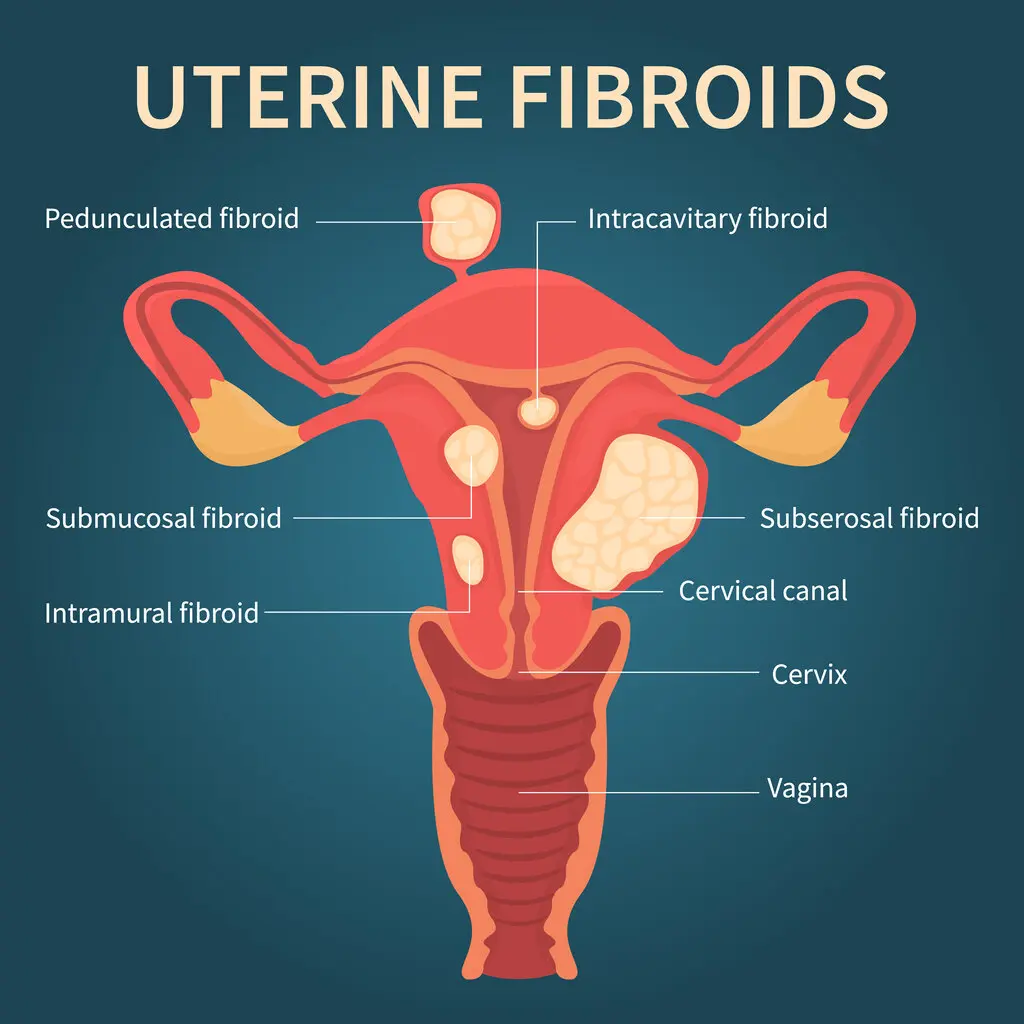What's the Big Deal About Fibroids?
What are Uterine Fibroids?
Fibroids are noncancerous growths that develop from the muscle tissue of the uterus. You may have one fibroid or many of differing sizes which can grow slowly or quickly, or simply stay the same size. If fibroids get too large, you may have painful and debilitating symptoms that make it hard for you to carry on with your normal day-to-day activities.


Who Gets Fibroids?
Fibroids are more common in women ages 30 to 50 years old and occur more often in women of color. They also seem to grow more quickly, arise at a younger age and cause more severe symptoms in Black women.
Fibroid Symptoms
Heavy Menstrual Periods. This is one of the most common symptoms of uterine fibroids, with about 30% of women experiencing excessive bleeding during their periods. You may also pass clots, have longer cycles of bleeding and become anemic due to a heavy flow.
Pelvic Pain. Although not all women with fibroids have pain, it is very common for fibroids to cause moderate to severe cramping pain during or between periods. Some women are forced to lose one to two days of work each month because of pelvic pain.
Frequent Urination. Fibroids that press on the bladder can sometimes make you feel like you have an urgent need to urinate or to get up several times each night to use the bathroom. In severe cases, pressure from a fibroid can make you lose control of your bladder (urinary incontinence).
Painful Intercourse. Pain during sex is common with fibroids. Some women avoid certain positions or intercourse altogether. Fibroids may also trigger bleeding after sex.
Back Pain. When fibroids press against the back muscles and nerves that come from the spine, you may feel back pain or pain that radiates down your legs.
Constipation. Fibroids that press on the colon or rectum can cause significant bloating or constipation.
Infertility. Fibroids can make it difficult for you to get pregnant. Although most women with fibroids can have a normal pregnancy, women with large or numerous fibroids sometimes have a harder time getting pregnant or a higher chance of miscarriage.
